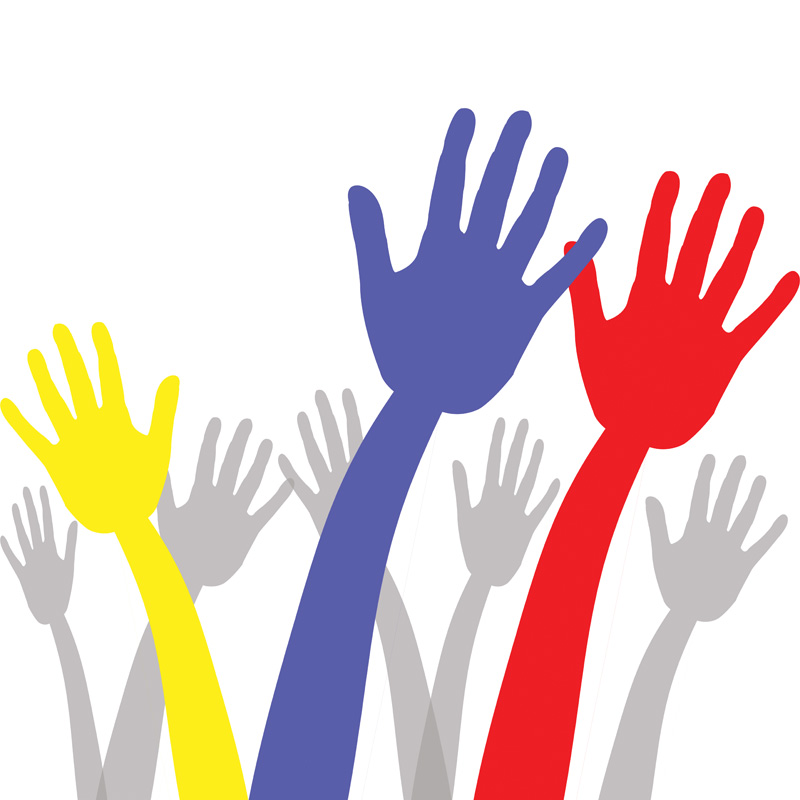
Reaching out is the hardest, but the most important step to achieving emotional health.
I’m a pretty black-and-white thinker. I’m all about an action plan, a solution, a strategy. I provide solutions to my clients, my friends and my family. I can always come up with solutions to other people’s problems.
It’s my own issues that are the problem. Sometimes my own issues feel too big, too close, and too emotional for me to deal with on my own. I struggle when it comes to dealing with emotional brick walls. They come up when I’ve exhausted my action plans and been forced to abandon my strategy. I struggle when I don’t see an end to a situation and am deeply emotionally involved. I struggle with knowing what to do, and I certainly struggle when it comes to asking for help.
I understand that when people come to me to ask for advice that it wasn’t easy. I know that it takes a certain amount of desperation for most people to ask another person for help. I know that it isn’t easy, because it certainly isn’t easy for me to ask for help, either.
And yet we all need to.
We seem to have fallen into thinking that we must be self-reliant and self-sufficient in all areas of our life. For some reason (and this is not logical at all), many of us have decided that asking others for emotional support shows weakness.
I can ask for help in the office, on the street and at home with no problem at all. I can ask for directions, I can ask a stranger for the time, and I can ask to speak to the manager at a restaurant if something isn’t right. I can ask someone to hold the door for me, to switch seats on an airplane and I can ask for a refund if I feel it is deserved.
But I struggle with asking for a hug when I need one, for understanding and patience, or for emotional support when I’m dealing with an issue I don’t know how to deal with. What am I afraid of? Am I afraid that the other person will judge me, will refuse to give me the support that I need, or will tell me to stop acting like a baby?
Is asking for help hard for you, too?
When we get stuck emotionally, whether it is in a difficult relationship, dealing with a difficult client or family member, or just feeling stuck and depressed, we often fall into the pattern of cocooning, turning inward instead of asking for the emotional support we need. Although it is difficult for me to ask for help, I do have a few strategies that I use that just might be what you need as well.
My mum is one of my best emotional champions I have. She loves me unconditionally and never judges me by what I’m feeling. She never says ‘that’s ridiculous’ or ‘I don’t believe that is what is really happening to you’ or ‘grow up!’ She listens. She offers advice (which I don’t always take), and she supports whatever emotion I am feeling.
Who is your champion? We need to have more than one, as we have many emotional challenges in life. It won’t be easy for you to turn to them, but it is important that we have a collection of people in our lives that will support whatever challenge we are dealing with.
There are professional champions too. You can speak to your priest or pastor. There are physiatrists and therapists who do this for a living and know how to help you. There are hundreds of support groups out there for just about any situation. Your corporate employee assistance scheme at work will likely have a list of possible options for you to explore. Yes, this solution may cost money. It is hard for us to admit we need professional help, and often justify not asking for it by saying it costs too much. Emotional health needs to be number one on my list (otherwise I wouldn’t even have my physical health to rely on). I’ve had to cut back in other areas to justify professional help when I needed it. I just wish I had taken that path sooner than I actually did.
There are online chat and support groups that can be a champion of sorts. They don’t offer professional advice, but sometimes just speaking to people who are in the same situation as you can put things into perspective. You might get a new plan of action, a new strategy, a new boost of energy to deal with whatever your emotional crisis is.
Be sure to continue to maintain your emotional support base of friends and family. When we cocoon, we remove ourselves from the outside as a way of protecting those around us from our own pain. But cocooning actually intensifies the pain. You need to continue to get emotional support from your champions. So be sure to answer the phone when it rings. You don’t have to say you had a bad day or describe what you are feeling. Talk about the weather, sports, the price of petrol or the sale on apples this week. Keep the doors and avenues open to feeling the support, love and acceptance that our collection of champions offer us.
A journal can be useful. Keep it private. It is good to go back and edit your journaling too. I journal on a keyboard, so I can go back and read what I’ve written, tweak it so it describes exactly what I’m feeling. I don’t need to do anything with it (although things invariably end up as one of my newsletters!). Just journaling my emotions makes me feel better.
We all have emotional issues that threaten to take us down. We all have dealt with them privately in the past. Some of us have been unable to do it on our own, and we have reached out for help, while some of us are afraid to ask.
Don’t be afraid to ask for help. Don’t be afraid to reach out into the unknown for support. You will feel better. You will regain your emotional foothold on the situation. And you will be better for the experience.
I have learned the hard way that I cannot do all things by myself. I have learned that reaching out for help shows more strength than not asking for help. I have learned that I don’t have to do everything myself, and that being a grown-up doesn’t mean that I must always be emotionally self-sufficient.













